Today’s Current Affairs: 18th October 2024 for UPSC IAS exams, State PSC exams, SSC CGL, State SSC, RRB, Railways, Banking Exam & IBPS, etc
Table of Contents
SAMARTH Scheme: Extended
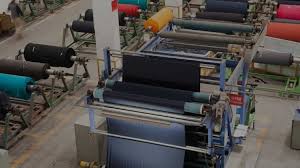
Central government has been extended the Samarth Scheme for two years (FY 2024-25 and 2025-26) with a budget of Rs. 495 Crore to train 3 lakh persons in textile-related skills.
- The Scheme for Capacity Building in Textiles Sector (SAMARTH) is a demand-drivenand placement-oriented umbrella skilling programme.
- It aims to incentivize and supplementthe efforts of the industry in creating jobs in the organized textile and related sectors, covering the entire value chain of textiles, excluding Spinning and Weaving.
- In addition to the entry-level skilling, a special provision for upskilling/ re-skilling programme has also been operationalized under the scheme towards improving the productivity of the existing workers in the Apparel & Garmenting segments.
- Under this scheme skilling programme is implemented through the following Implementing Agencies:
- Textile Industry. Institutions/Organizations of the Ministry of Textiles/State Governments having training infrastructure and placement tie-ups with the textile industry.
- Reputed training institutions/ NGOs/ Societies/ Trusts/ Organizations/ Companies /Start-Ups / Entrepreneurs active in the textile sector having placement tie-ups with the textile industry.
- Nodal Ministry:Ministry of Textiles.
Kaziranga National Park : India’s Second Largest Butterfly Diversity Hub

More than 446 butterfly species have been recorded in Assam’s Kaziranga National Park (KNP), making it a habitat with the second highest concentration in the country after the Namdapha National Park in Arunachal Pradesh.
- Kaziranga National Park is situated in the north-eastern part of the country in the districts of Golaghat and Nagoan in the state of Assam.
- It is the single largest undisturbed and representative area in the Brahmaputra Valley floodplain.
- In 1985, the park was declared a World Heritage Site by UNESCO.
- The river Diffalu, a tributary of the Brahmaputra, flows through the National Park area (core/critical tiger habitat), while another tributary, Moradifalu, flows along its southern boundary.
- It is of sheer forest, tall elephant grass, rugged reeds, marshes, and shallow pools.
- It is inhabited by the world’s largest population of one-horned rhinoceroses, as well as many mammals.
Drugs Technical Advisory Board:
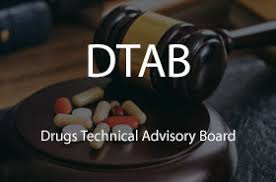
The Drugs Technical Advisory Board (DTAB) has recommended the inclusion of all antibiotics in the definition of new drugs in the New Drugs and Clinical Trial (NDCT) Rules, 2019.
- Drugs Technical Advisory Board is the highest statutory decision-making body on technical matters related to drugs in India.
- It is established as per the Drugs and Cosmetics Act, 1940.
- It is part of the Central Drugs Standard Control Organization (CDSCO).
- It advises the Central Government and the State Governments on technical matters arising out of the administration of the Drugs and Cosmetics Act, of 1940 and to carry out the other functions assigned to it by this Act.
- Nodal Ministry:Ministry of Health and Family Welfare.
- According to Rule 122 E of the Drug and Cosmetic Rules 1945, a new drug can be one which has not been used in the country and has not been recognised as effective and safe by the licensing authority for the proposed claims.
- It could also be an approved drug with modified or new claims including indications, dosage, and new route of administration.\
- If brought into the new drug bracket, the manufacturing, marketing, and sale of antibiotics will be documented.
- Also, the manufacturing and marketing clearance will have to be obtained from the Central government instead of State drug administration, and patients will be able to buy antibiotics only on prescription.
International Solar Alliance Assembly:

The curtain raiser for the Seventh Session of the International Solar Alliance (ISA) Assembly was hosted in New Delhi.
- International Solar Alliance Assembly is the apex decision-making body of International Solar Alliance (ISA), representing each Member Country.
- This body makes decisions concerning the implementation of the ISA’s Framework Agreement and coordinated actions to be taken to achieve its objective.
- The Assembly deliberates matters of substance, such as the selection of the Director General, the functioning of ISA, approval of the operating budget, etc.
- It meets annually at the ministerial level at the ISA’s seat.
- It assesses the aggregate effect of the programmes and other activities in terms of deployment of solar energy, performance, reliability, cost and scale of finance.
- Members: 120 countries are signatories to the ISA Framework Agreement, of which 102 countries have submitted the necessary instruments of ratification to become full members of the ISA.
- The Republic of India holds the office of the President of the ISA Assembly, with the Government of the French Republic as the co-president.
- The Seventh Session of the ISA Assembly will deliberate on initiatives of ISA that impact energy access, security, and transitions with a focus on:
- Empowering Member Countries to adopt solar energy as the energy source of choice
- Make energy access universal by supporting solar entrepreneurs to scale up local solutions
- Mobilise finance to speed up solar deployment
West Nile virus : Outbreak

Ukraine is grappling with a severe outbreak of West Nile virus (WNV), with health officials raising alarms as the death toll rises.
- West Nile Virus (WNV) is a member of the flavivirus genus and belongs to the family Flaviviridae.
- It was first isolated in a woman in the West Nile district of Uganda in 1937.
- It is commonly found in Africa, Europe, the Middle East, North America and West Asia.
- According to the World Health Organization (WHO), it typically spikes between the summer and autumn months of June and September.
- Transmission: Human infection is most often the result of bites from infected mosquitoes. Mosquitoes become infected when they feed on infected birds, which circulate the virus in their blood for a few days.
- The virus may also be transmitted through contact with other infected animals, their blood, or other tissues.
- Infection with WNV is either asymptomatic (no symptoms) in around 80% of infected people, or can lead to West Nile fever or severe West Nile disease.
- About 20% of people who become infected with WNV will develop West Nile fever and symptoms include fever, headache, tiredness, and body aches, nausea, vomiting, occasionally with a skin rash.
Graded Response Action Plan:
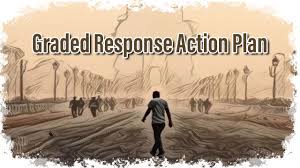
The Centre’s air pollution control panel for Delhi-NCR recently directed state governments in the region to implement the first stage of the Graded Response Action Plan (GRAP).
- Graded Response Action Plan (GRAP)is a framework designed to combat air pollution in the Delhi-NCR region.
- It was introduced as an emergency response mechanism, and its implementation is triggered when the Air Quality Index (AQI) reaches “poor” levels.
- GRAP is particularly important during the winter months when air quality tends to plummet.
- The Commission for Air Quality Management (CAQM) in NCR and adjoining areas oversees the implementation of GRAP.
- It collaborates with the Ministry of Environment, Forest and Climate Change (MoEFCC).
- The CAQM has constituted a sub-committee for the operationalization of the GRAP.
- This body includes officials from the CAQM, member secretaries of pollution control boards of Uttar Pradesh, Delhi, Haryana, Rajasthan, the Central Pollution Control Board, a scientist from the IMD, one from the IITM, and a Health Advisor.
- The sub-committee is required to meet frequently to issue orders to invoke the GRAP.
- The orders and directions of the CAQM will prevailin case of any conflict between directions issued by the State governments and the CAQM.
- Different stages of GRAP: GRAP consists of four stages, each with targeted actions to be taken by the necessary authorities and agencies. These are the following:
- Stage I: “Poor” air quality (Delhi AQI: 201-300)
- Stage II: “Very Poor” air quality (Delhi AQI: 301-400)
- Stage III: “Severe” air quality (Delhi AQI: 401-450)
- Stage IV: “Severe+” air quality (Delhi AQI > 450)
Kaizen:
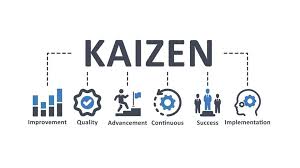
The month-long strike at Samsung’s manufacturing facility in Tamil Nadu has brought to the spotlight the stressful working conditions in these factories shaped and determined by their management philosophy, which draws inspiration from the Japanese production method called Kaizen.
- Kaizen is a compound of two Japanese words that together translate as “good change” or “improvement.”
- Kaizen is a Japanese business philosophy that encourages continuous improvement involving employees at all levels of a company.
- The concept of kaizen encompasses a wide range of ideas.
- Those include making the work environment more efficient by creating a team atmosphere, improving processes and procedures, ensuring employee engagement, and making jobs more fulfilling, less tiring, and safer.
- The goal of Kaizen is to make small changes over a period of time to drive continuous improvement within a company.
- The Kaizen process recognizes that small changes now can add up to huge impacts in the future.
- Ultimately, that can mean better quality control, more efficient processes, and the elimination of waste, among other benefits.
- Under Kaizen, improvements can be initiated by any employee at any time.
- The philosophy is that everyone has a stake in the company’s success, and everyone should strive, at all times, to help make the business better.
Third-Party Litigation Funding:

The idea of Third-Party Litigation Funding (TPLF) has quickly emerged as a game-changer, potentially opening courtroom doors for many who felt they had been shut out.
- TPLF, often referred to as litigation finance, is a financial arrangement in which a third party (with no prior connection to the litigation) in a legal dispute provides funding to support the plaintiff’s pursuit of a legal claim.
- In return, the third-party funder receives a portion of the proceeds if the case is successful.
- Plaintiffs do not have to repay the funding if their lawsuit is not successful.
- This funding model allows entities to bring lawsuits without shouldering the financial risks associated with litigation.
- The emergence of TPLF has been driven by various factors, including the escalating costs of legal proceedings, the complexity of modern litigation, and the desire to level the playing field between parties with disparate financial resources.
- Disputes that attract TPLF generally include commercial contracts, international commercial arbitration, class action suits, tortious claims like medical malpractice and personal injury claims, anti-trust proceedings, insolvency proceedings, and other like claims that have a calculated chance of resulting in a substantial monetary award.
- TPF is not expressly prohibited in India. In fact, several judgments highlight its benefits and express that there is a need for its regulation.
Ossification Test:
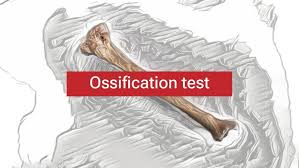
One of the individuals accused in the murder case of a political leader underwent an ossification test to determine if he was a minor.
- Ossification is the natural process of bone formation, beginning in the early developmental stage of the fetus and continuing until late adolescence, with variations among individuals.
- A person’s approximate age can be estimated based on the stage of development of their bones.
- The test involves taking X-rays of specific bones, such as those in the hands and wrists, to assess skeletal and biological development.
- The X-ray images can be compared to standard development benchmarks to help determine age.
- The analysis may also utilise a scoring system that evaluates individual bones in the hands and wrists, comparing their growth to established maturation standards within a specific population.
- Variability in observing bone maturation can affect the accuracy of ossification tests.
- Minor developmental differences among individuals create potential for error in age estimation.
- Ossification tests typically provide an age range, such as 17-19 years.
- Courts have addressed the issue of margin of error within this range, debating whether to accept the lower or upper end of the range.
- For example, In 2024, the Delhi High Court ruled that in cases under the POCSO (Protection of Children from Sexual Offences) Act, 2012 the upper age limit of the ossification test’s reference range should be considered.
- The court also stated that a margin of error of two years should be applied when determining age.
Five Eyes Supports Canada In Spat With India:
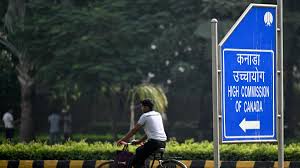
Citing alleged involvement in the killing of Hardeep Singh Nijjar, Canada has expelled six Indian diplomats. In a tit-for-tat move, India too expelled six Canadian diplomats.
- The Five Eyes is an intelligence-sharing alliance consisting of five countries: United States, United Kingdom, Canada, Australia, and New Zealand.
- The alliance was initially formed during World War II for sharing signals intelligence (SIGINT) and has since evolved into a broader intelligence cooperation framework.
- It is based on the UKUSA Agreement, a multilateral agreement for cooperation in intelligence activities, particularly concerning signals intelligence.
- The Five Eyes share a wide range of intelligence, including military, political, security, and cyber intelligence.
- Initially focused on the Soviet Union during the Cold War, the Five Eyes now addresses global security threats such as terrorism, cybercrime, and state-sponsored espionage.
- The alliance members operate extensive signals intelligence infrastructure and conduct joint surveillance operations on potential security threats worldwide.
Nikita Porwal Crowned Femina Miss India 2024:
Nikita Porwal from Madhya Pradesh has emerged as the winner of the Femina Miss India 2024 title. This prestigious event took place at Famous Studios in Mumbai, marking the 60th edition of India’s iconic beauty pageant.
NITI Aayog to Host International Methanol Seminar:
NITI Aayog is gearing up to host the Second International Methanol Seminar and Expo 2024 on October 17-18, 2024, at the Manekshaw Centre in New Delhi. This two-day event is a significant part of India’s Methanol Economy Programme, initiated in 2016 in collaboration with the Methanol Institute, USA.
Akhil Sheoran Secures Bronze at ISSF World Cup Final in New Delhi:
India’s Akhil Sheoran clinched the bronze medal in the 50m Rifle 3 Positions event at the ISSF World Cup Final in New Delhi. In a high-pressure moment, Sheoran displayed remarkable composure and precision, making a decisive shot in the final round to finish third with a score of 452.6.
Nayab Saini Sworn in as Haryana CM, BJP Wins Third Term:
Nayab Singh Saini was sworn in as Haryana’s Chief Minister for the second time, marking BJP’s third consecutive term in power in the state. Governor Bandaru Dattatreya administered the oath at a ceremony attended by Prime Minister Narendra Modi, Union Ministers, and NDA leaders.
Akash Tripathi Appointed to Key Digital Governance Leadership Roles:
Akash Tripathi, a 1998-batch IAS officer from the Madhya Pradesh cadre, has been appointed as the Managing Director and Chief Executive Officer (MD/CEO) of Digital India Corporation (DIC) and President/Chief Executive Officer (P&CEO) of the National e-Governance Division (NeGD).




